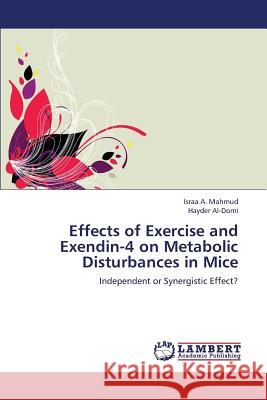Effects of Exercise and Exendin-4 on Metabolic Disturbances in Mice » książka
Effects of Exercise and Exendin-4 on Metabolic Disturbances in Mice
ISBN-13: 9783659349027 / Angielski / Miękka / 2013 / 116 str.
Obesity has emerged as one of the major public health concerns of the 21th century. High intake of energy-dense food and inactivity markedly contributes to the expansion of this problem. Therefore, identifying effective measures is crucial to combat this epidemic. Exercise is one of the common recommended remedy for obese persons to prevent weight gain and to improve metabolic profile. Recently, it has been speculated that the impact of exercise on body weight homeostasis is mediated by changes in the plasma levels of appetite-regulating hormones, and glucagon-like peptide-1 (GLP-1) is one of these hormones. Some studies observed lower postprandial levels of GLP-1 in some obese individuals than in lean controls, which may suggest deterioration in satiety responses, and glucose and lipid metabolism. Therefore, restoration of GLP-1 action by exercise and exendin-4, a long-acting receptor agonist of GLP-1 that has anorexigenic and metabolic-improving properties similar to GLP-1, may ameliorate this disorder. This book examines whether exercise and exendin-4 can modulate "postprandial dysmetabolism" associated with obesity, and whether this effect is independent or synergistic.











